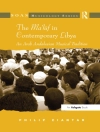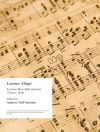How are our personal soundtracks of life devised? What makes some pieces of music more meaningful to us than others? This book explores the role of memory, both personal and cultural, in imbuing music with the power to move us. Focusing on the relationship between music and key life moments from birth to death, the text takes a cross-disciplinary approach, combining perspectives from a ‘history of emotions’ with modern day psychology, empirical surveys of modern-day listeners and analysis of musical works. The book traces the trajectory of emotional response to music over the past 500 years, illuminating the interaction between personal, historical and contextual variables that influence our hard-wired emotional responses to music, and the key role of memory and nostalgia in the mechanisms of emotional response.
Jadual kandungan
Chapter 1 – Introduction.-Chapter 2.- Longing for the Past and Music-Listening Preferences.-Chapter 3 – Desire for Family Connections: Family History and Cultural Context.-Chapter 4 – Personality, Gender and Education.-Chapter 5 – Setting the Mood: Throughout History and in the Modern Day.-Chapter 6 – Music Across the Lifespan.- Chapter 7 – Birth.-Chapter 8 – Childhood.-Chapter 9 – Coming of Age.-Chapter 10 – Love & Heartbreak.-Chapter 11 – Weddings.-Chapter 12 – Funerals and Mourning Rituals.-Chapter 13 – Towards a New Contextual Psychology of Music and Emotion.
Mengenai Pengarang
Sandra Garrido is a Research Fellow at the MARCS Institute for Brain, Behaviour & Development at Western Sydney University, Australia. She has a background in both music and psychology and has authored over 70 academic publications including a book entitled Why Are We Attracted to Sad Music? (2017).
Jane Davidson is Professor of Creative and Performing Arts, Associate Dean Research, and Deputy Director of the ARC Centre of Excellence for the History of Emotions at the University of Melbourne, Australia. She has published extensively and gained grants internationally in the fields of music and psychology.












